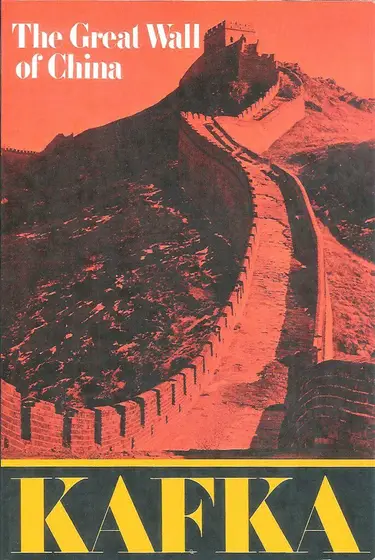The Great Wall of China

The story presents a first-person narrative of an unnamed narrator who joins the labor force building the Great Wall. The narrator describes the immense scale of the project, highlighting the effort and resources required to build such a colossus.
As the story progresses, the narrator delves into the philosophical implications of the Great Wall. He ponders the purpose and significance of its construction, questioning its effectiveness and the motivations behind it. The narrator contemplates the existence of a hidden purpose or secret. The Wall might be not just to keep out invaders but also to keep the people confined and controlled.
The story further explores the themes of futility, isolation, and the incomprehensibility of human endeavors. The construction of the Wall becomes an allegory for the human condition. It represents the ceaseless pursuit of goals that may ultimately be futile or meaningless.
Throughout the story, the narrator encounters various characters who offer different perspectives on the Wall. Perspectives include those who believe in its importance and necessity, as well as those who question its purpose. The narrative becomes a reflection on the nature of power, authority, and the impact of monumental projects on society.
"The Great Wall of China" is characteristic of Kafka's style, incorporating existential and absurdist elements. It presents a critique of bureaucratic systems, societal constructs, and the human desire to control and isolate. The story invites readers to contemplate the complexities of existence and our limits in the face of grandiose ambitions.